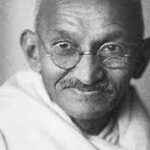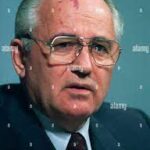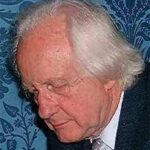The Great Success of Mikhail Gorbachev
HISTORY, 19 Sep 2022
Timothy Braatz – TRANSCEND Media Service
3G: Gandhi, Galtung, Gorbachev
6 Sep 2022 – “Going by his hopes and ambitions in 1985,” Mikhail Gorbachev “was one of the great failures of history.” That’s according to Patrick Cockburn. The title of Cockburn’s article in Counterpunch has Gorbachev as “one of the greatest failures in history”(Sept. 5, 2022).
Cockburn reminds us that General Secretary Gorbachev hoped to curb Soviet militarism and transform the Soviet Union into a multiparty democracy. Instead, Gorbachev’s weakening of the imperialist power structure brought the Soviet Union to a quick end. The analysis is accurate, but why the hyperbolic name-calling?
Mohandas Gandhi never held official power in India, but his political failure arguably matches Gorbachev’s. With millions of supporters, Gandhi strove for national independence based on ahimsa (nonharming). His nonviolent campaigns broke the thrall of British colonialism. But independence, when it came, brought sectarian massacres and hostile partitioning of the subcontinent.
Still, Gandhi’s contribution to humanity is immense. He experimented with nonviolence and taught us how it worked. In the USA, Gandhians initiated the popular anti-nukes, anti-racism, and antiwar movements. It’s no exaggeration to say that many of the pro-humankind developments in North American and Europe, 1950-1990, trace back to Gandhi.
Despite this growing enlightenment, the U.S. and Soviet military states were on the verge of destroying human civilization. Again, no exaggeration. See, for example, Goldsboro, North Carolina (1961); Cuban Missile Conflict and Vasili Arkhipov (1962), Damascus, Arkansas (1980); Autumn Forge, Stanislav Petrov, and Able Archer (1983); and Chernobyl, Ukraine (1986).
Gandhian social scientist Johan Galtung founded the Peace Research Institute in Oslo in 1959. Similar think tanks for peace soon appeared in Sweden and West Germany. Their “common security” and “non-offensive defense” insights entered mainstream European discourse and eventually changed Gorbachev’s thinking.
Indeed, General Secretary Gorbachev joined the international nuclear disarmament movement. Heeding the advice of U.S. and Soviet scientists, he took bold, unilateral steps—temporary test ban, on-site monitoring, arsenal reduction proposals—that led to disarmament summits and treaties. Like Arkhipov and Petrov, Gorbachev balked at mutually-assured destruction in a precarious moment and may have forestalled global nuclear annihilation. Spasiba, gentlemen!
Speaking before the United Nations on December 7, 1988, Gorbachev announced the withdrawal of troops and tanks from Europe so that Soviet military deployment would be “clearly defensive.” I disagree with Cockburn’s notion that Gorbachev was conceding Soviet defeat in the Cold War. Rather, Gorbachev was showing the way to victory—a global, human victory—over the Cold War and, more generally, over imperialism:
“It is obvious, for instance, that the use or threat of force no longer can or must be an instrument of foreign policy. This applies above all to nuclear arms, but that is not the only thing that matters. All of us, and primarily the stronger of us, must exercise self-restraint and totally rule out any outward-oriented use of force.”
In that spirit, Gorbachev refused to intervene in the Warsaw Pact dictatorships. This reversal of Soviet policy—in defiance of the entrenched Soviet military-industrial complex—led to the nonviolent revolutions of 1989. In Poland, Hungary, East Germany, and Czechoslovakia, popular movements for electoral democracy and human rights ended oppressive Communist Party rule.
In his pursuit of nuclear abolition, Gorbachev patiently endured President Ronald Reagan’s ignorance and President George H.W. Bush’s dishonesty. Bush’s foreign policy team, including Dick Cheney, couldn’t relate to Gorbachev’s integrity and humanity. “We could not believe,” admitted Jack Matlock, ambassador to the Soviet Union, that Gorbachev “was not willing to use force to keep the system in power, or even to keep himself in power.”
The historic failure I see is that of the U.S. people. Unlike the Eastern Europeans, they failed to accept the gift of Gorbachev. They failed to engage in mass nonviolence to compel the U.S. ruling class to follow Gorbachev’s prescription. This failure doomed the people of Iraq, Afghanistan, Syria, and now Ukraine—perhaps all of us.
Calling Gorbachev an historic failure obscures his courageous commitment to peace. His domestic political project miscarried, but the man was a stunning success. We need more like him.
________________________________________________
Timothy Braatz is a playwright, novelist, and professor of history and nonviolence at Saddleback College in Mission Viejo, California (www.saddleback.edu/tbraatz). His most recent nonfiction book is Peace Lessons. His publications include Surviving Conquest: A History of the Yavapai Peoples; From Ghetto to Death Camp: A Memoir of Privilege and Luck; and Grisham’s Juror.
Tags: Gandhi, History, Johan Galtung, Mikhail Gorbachev, Nonviolence, Nonviolent Action, Official Lies and Narratives, Peace Culture, Peacebuilding, Russia, USSR
This article originally appeared on Transcend Media Service (TMS) on 19 Sep 2022.
Anticopyright: Editorials and articles originated on TMS may be freely reprinted, disseminated, translated and used as background material, provided an acknowledgement and link to the source, TMS: The Great Success of Mikhail Gorbachev, is included. Thank you.
If you enjoyed this article, please donate to TMS to join the growing list of TMS Supporters.

This work is licensed under a CC BY-NC 4.0 License.


